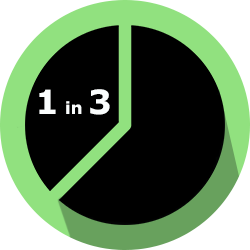Data Blog
You’re reading our Data Blog, a great way of getting quick facts, and the latest data, on different public health topics.
Mental illness in Canada Published: ()
Mental illness is characterized by changes in an individual's thinking, mood, or behaviour and is usually associated with significant distress or impaired functioning in social, occupational or other activities.
Examples of mental illnessFootnote1:
- major depressive disorder
- bipolar disorder
- generalized anxiety disorder
- posttraumatic stress disorder
- schizophrenia
- eating disorders
- substance-related disorders
Mental illness can affect anyone. Some factors have been associated with mental illness, including:
- family history
- stressful life events
- negative early life experiences
- socio-economic status
Early care and seeking treatment can help individuals recover from or manage a mental illness. However, stigma and other barriers can delay people from seeking help.
Mental illnesses have a significant impact on the health of Canadians as well as the Canadian economy, including our health and social care systems.

1 in 3
1 in 3 Canadians (about 9.1 million people) will be affected by a mental illness during their lifetimeFootnote 2.
According to the most recent findings from the Public Health Agency of Canada’s Canadian Chronic Disease Surveillance System (CCDSS)Footnote 3:

1 in 7
Every year, about 15% of Canadians use health services for a mental illness.
5.5 million
Close to 5.5 million Canadians received health services for a mental illness in 2016-2017. That's more than the population of British Columbia.

Female vs. Male
Canadian females are 30% more likely than males to use health services for mental illness.

Young Canadians
In 2016-2017, Canadians aged 19 and under had the lowest proportion of health services use for a mental illness (10.7%).
However, there is an increasing trend in the use of health services for mental illness among young Canadians. From 2000-2001 to 2016-2017, the proportion of Canadians aged 19 and under using these services rose an average of 2.6 % per year.
The Canadian Chronic Disease Surveillance System (CCDSS) is updated annually and is supported by a pan-Canadian partnership between the Public Health Agency of Canada and all provinces and territories.
Learn more about mental illness:
- Visit Canada.ca Canada.ca and search "Mental Illness"
- Get data in the Data Tool
- Like us @HealthyCdns
- Follow us @GovCanHealth